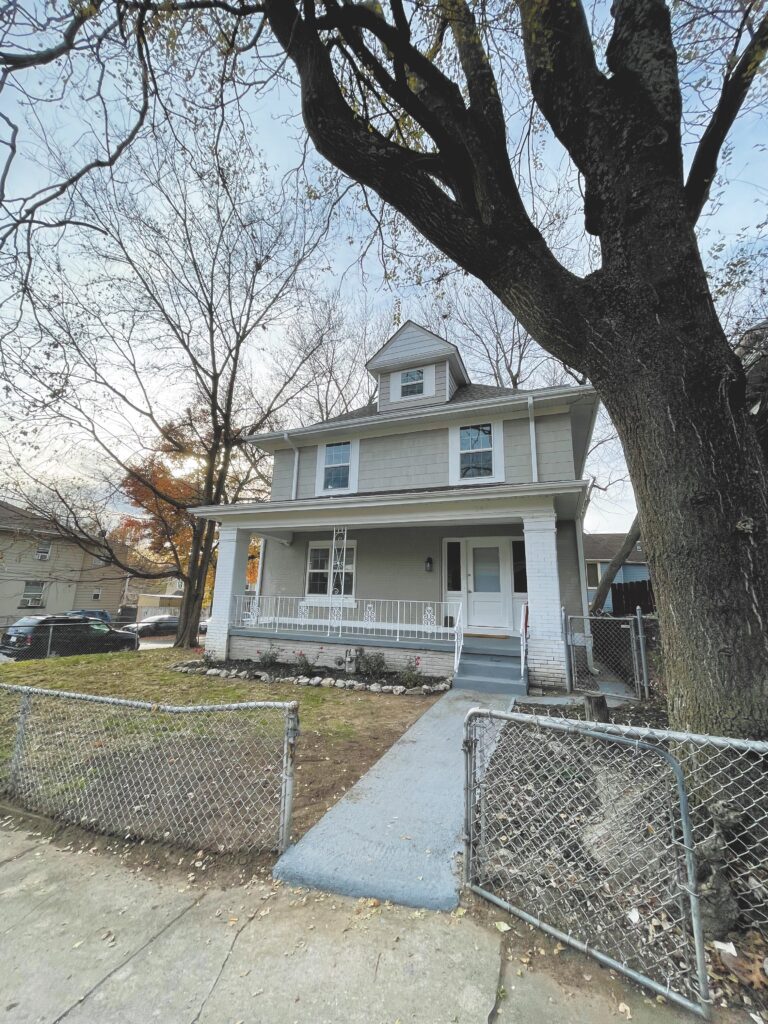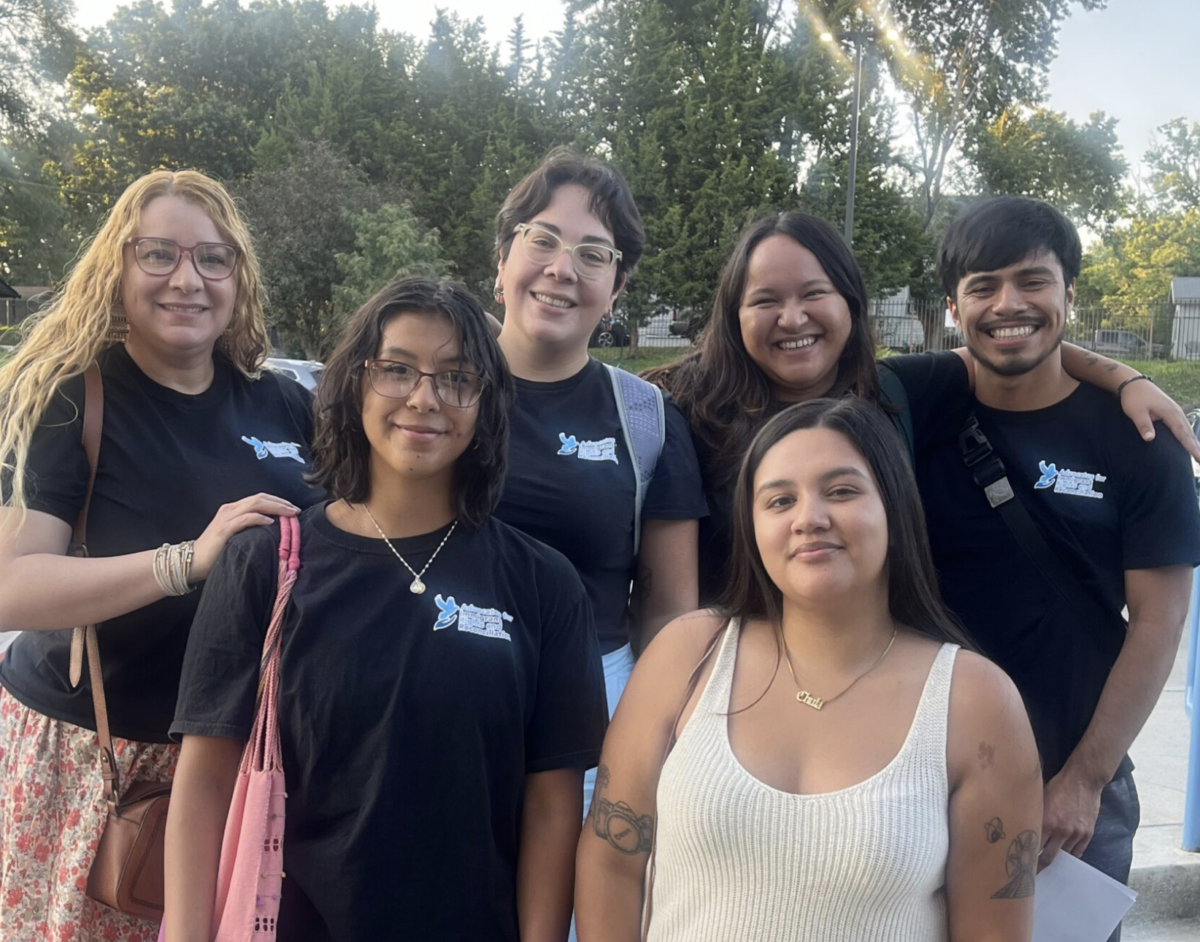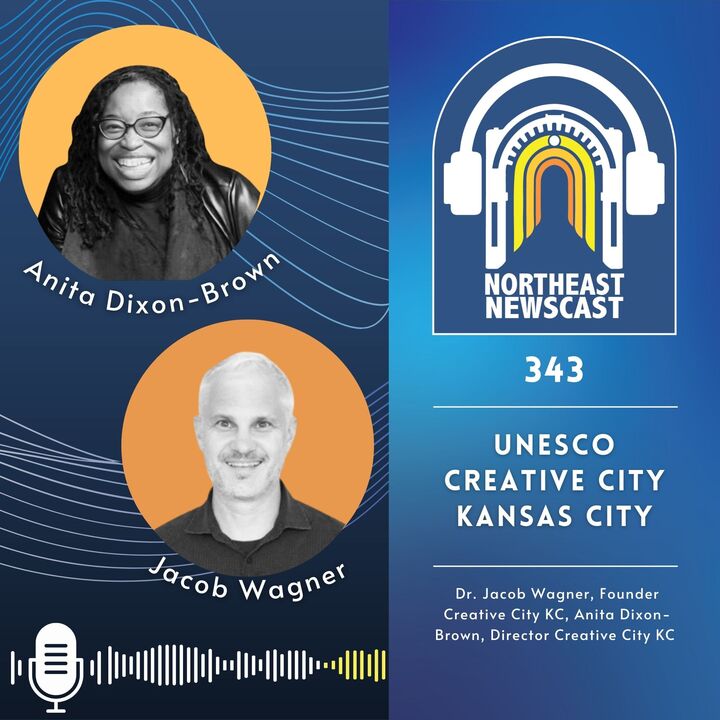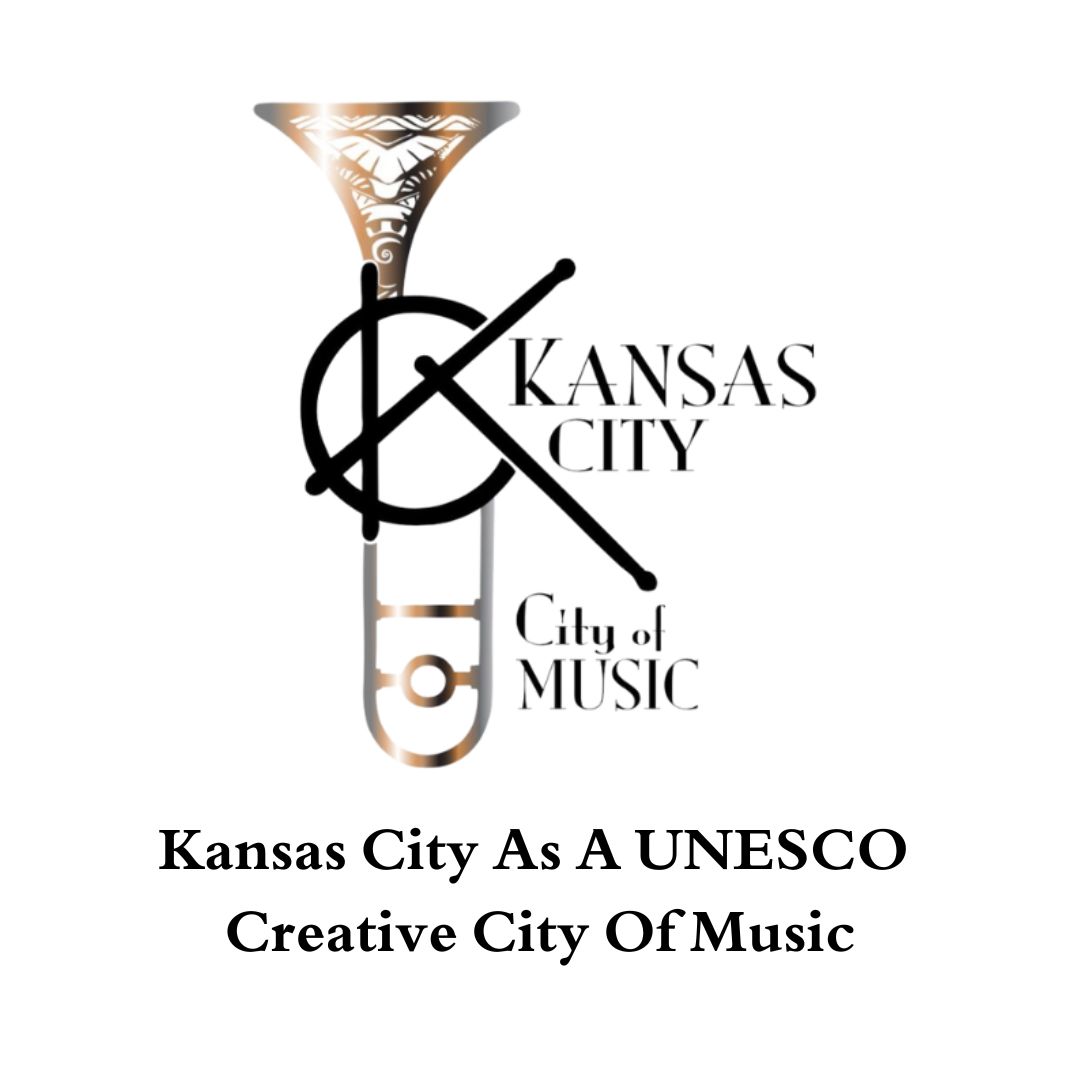
By Abby Hoover
Ozark Recovery, which recently opened three group homes in Kansas City for those in drug rehabilitation, is taking a modified approach to addiction treatment. The team of medical professionals ditches the white coats and sterile halls for a comfy living room or a front porch, meeting those in recovery where they are.
Pam Turner, nurse and Director of Housing for Ozark Recovery, is confident in their program because, as medical professionals, they are able to provide all modalities of addiction treatment, including Medication Assisted Treatment (MAT), Cognitive Behavioral Therapy, peer support, 12-step meetings and group therapy.
Long-term success in addiction treatment is highly dependent on selecting the right treatment approach for the individual, according to Ozark’s website. What works for one person does not work for the other, so having evidence-based treatment options within the housing program is a game changer.
“I’m a nurse by trade, and I worked in addiction recovery for a few years,” Turner said. “That’s kind of where my passion came into.”
Turner worked for Dr. Jasdanwala and his wife Andrea, a nurse practitioner, who specialize in MAT. Together they founded Ozark Recovery Housing, and opened their first house in Columbia, Mo., in 2019.
“They reached out and said, ‘Look, you’ve talked about the need for housing here in Kansas City,’ because we can put people through treatment all day long, but if we send them right back into the same situation, we lessen their chances of staying in recovery,’” Turner said. “Providing stable, clean housing, keeping them involved and engaged in their program and surrounding them with support is key.”
They opened a women’s house at 57th and Forest in June, and a men’s house in Historic Northeast in August. The first men’s house, on Askew, filled up quickly and because of the success rate, they recently purchased another house on Bales.
“We had our first guy move into this location [on December 1],” Turner said. “We don’t have any kind of [time] limit on it right now. Everybody’s recovery journey is a little bit different, so some guys hit the ground running, it clicks the first time. They put things in place and can get back out on their own within a few months. For other people, they may stumble a little more, need more time to do that, are not ready to go out and be in their own place and outside of that circle for a while so we don’t put a time limit on it right now. We’ve had some that have been with us since the day we opened and some that have graduated from that program, are out on their own, reunification with their kids, things like that.”
The Askew center can house 12 men and a live-in house manager, and the Bales house can house nine, in addition to having a temporary detox facility, which Turner said is something that is really needed in Kansas City right now.
“When somebody says they want to get clean, typically they need to go through a detox program for a few days to get them stabilized before they can come into transitional living or an inpatient treatment,” Turner said. “So, we may just be five beds, but it’s five more beds in Kansas City that we have right now.”
With a substance use doctor and nurse practitioner based in St. Louis and a nurse on-site, Ozark Recovery is the only transitional living program that is owned and operated by medical professionals in Kansas City. Turner hopes to soon offer primary care, housing and treatment all in one place, and Dr. Jasdanwala offers telehealth visits.
“A lot of times you’ll find if people have been using for a long time, they’ve done some damage to their bodies and when they start to get clean they realize, ‘Oh, wait a minute, I didn’t realize I had high blood pressure,’ or ‘I was an IV user, I have Hep C, I don’t know what to do about that.’ We can provide that education, we can start to recognize those symptoms and talk to them about it and start to get them healthy on that level as well.”
Neighbors to the group homes have been supportive so far, introducing themselves and asking questions.
“We have had nothing but support from them, and here being just moved in, the neighbors have just introduced themselves just in the last couple days,” Turner said. “We’re getting to know them. We don’t necessarily advertise that we’re a recovery house, but as we get to know them, and they get curious seeing a lot of traffic in and out of the house, once they understand what we’re doing.”
Turner said there’s an abundance of research based on recovery houses in the community over time decreasing the crime rate in that area.
“We definitely encourage community service and the guys do that a lot,” Turner said. “They’re out cleaning up the trash along the sidewalks, and so that’s what we’re really hoping is to be a positive here in Northeast and really help to build this community back up.”
Ozark Recovery chose Northeast for two locations because of the affordability of large homes that can be restored and because it’s centrally located, but also because they saw a huge need in the Northeast neighborhoods.
“Obviously the house is beautiful so it gives the guys a beautiful home to come home to that a lot of them are not accustomed to, it’s centrally located – we’re right off the avenue and a lot of our clients don’t have transportation so we need something that’s close to bus lines – and then also we just like the area,” Turner said. “Those of us that have grown up in Kansas City, we’ve seen the transition in Northeast and the effort to really bring life back in here and make it home again to a lot of people.”
Michael Meyer, Askew house manager, knows community is important for those in recovery.
“Making sure it’s a healthy environment where people can grow and comfortably change their lives,” Meyer said, adding that the men in their program want to be part of positive change for the neighborhood. “Definitely starts when you just clean up your little side of the street. You know, that’s all we really can do is do our part to better our own lives and in turn, spill over into the people next to us.”
Ozark Recovery resident Marco said they’re focused on attraction rather than promotion.
“They seen some of us that ran with some of those people and they see us riding around in our new car – well not new, but having a car, having a good job, well dressed, you know – and they’re like, ‘Oh, man, maybe I should quit doing drugs and go after what I want,” Marco said.
Often those struggling with substance use disorders don’t know that there are long-term recovering housing options, an alternative to 30-day treatment centers that the crew at Ozark Recovery know rarely get people with chemical dependencies out of the cycles.
“This is where the real change happens,” Meyer said. “People get a chance to implement it into life and to transition from that homeless type of lifestyle and productive member of society. It’s a proving ground, really.”
The residents agree that if someone decides to seek recovery, it’s important for it to be in the community so they don’t have to travel two states away and go away from family, but their support is right here.
“I think for the public, a lot of people just don’t understand when you say transitional living house, what that means,” Turner said. “We’ve run into that with some zoning and things but the old terminology, the ‘halfway house,’ which lumps together, unfortunately, some outdated terminology and some different things together. Once they find out what we’re doing here, it makes sense.”
For the residents of Ozark Recovery Housing, it’s about so much more than staying clean. They help each other fill in the gaps in skills when it comes to learning to live on their own – doing laundry, using a dishwasher, tying a tie – and giving and receiving support from someone who’s been in their shoes.
“It’s learning how to live a new way of life and I might not know how to do that because all I know is drugs,” resident Michael Jacobson said. “All this, teaching each other how to live, that’s the best part about it. One addict helping another.”
Turner said recovery and relapse is a never ending cycle for so many people because the steps haven’t been cohesive – until now. Because Ozark Recovery takes those in recovery from detox to in-patient care to group living and beyond, fewer people slip through the cracks.
“We are looking to open a commercial property not too far from here that is a 40-bed detox that takes people in off the streets, starts them in a detox, gets them stable, then moves them into transitional living,” Turner said. “It’s continuity of care all along the way. It’s not, ‘You got treated in detox, good luck to you until you can find a place to go in-patient or you can find transitional living.’ It’s a fluid movement, they start building those relationships from day one, and the same people that were helping you there, you’re gonna see those faces in the house.”
Many of the residents have experienced that cycle, or had to detox in jail, before being kicked back onto the streets because a program didn’t have room for another two to four weeks.
“In that interim, unfortunately, fentanyl is on the streets and changed the game and people are dying,” Turner said.
Meyer said getting away from the institutional type of program – sitting in chairs all day – makes real progress happen. Now, there’s hope for the future. They are able to get certified if they want to stay and work in the recovery field, get their GED, or build life skills to make them successful long-term. Now, Turner’s asking for the community’s support.
“We’re always open for donations, a lot of people come to us with nothing,” Turner said. “Any businesses that are local, churches, that are open to hiring people with a past, but that are turning their lives around and trying to do big things. That’s a struggle that these guys run into. So any businesses that are open to interviewing and putting these guys to work, or our ladies to work, huge help. We’d love to keep it local, small businesses.”
They’re working on a directory of local companies that will hire recovering addicts and are also willing to help with community service projects.
Ozark Recovery Housing is taking a different approach to healing people from substance use disorders and addiction, while also trying to improve the neighborhoods around them. People looking for addiction recovery resources can find Ozark Recovery on Facebook at Ozark Recovery Housing or at ozarkrecoveryhousing.com.


















